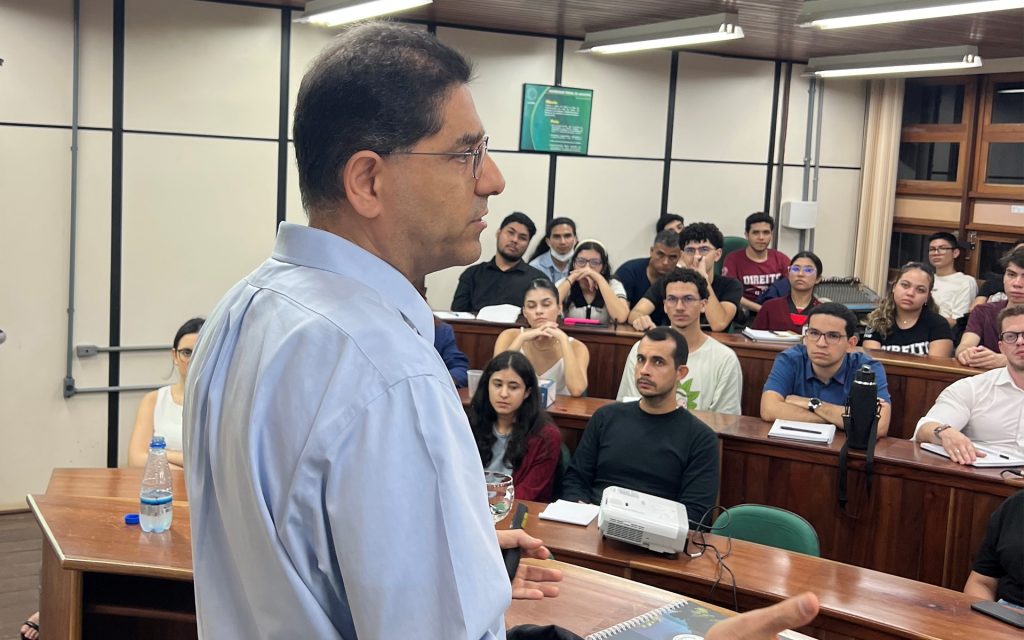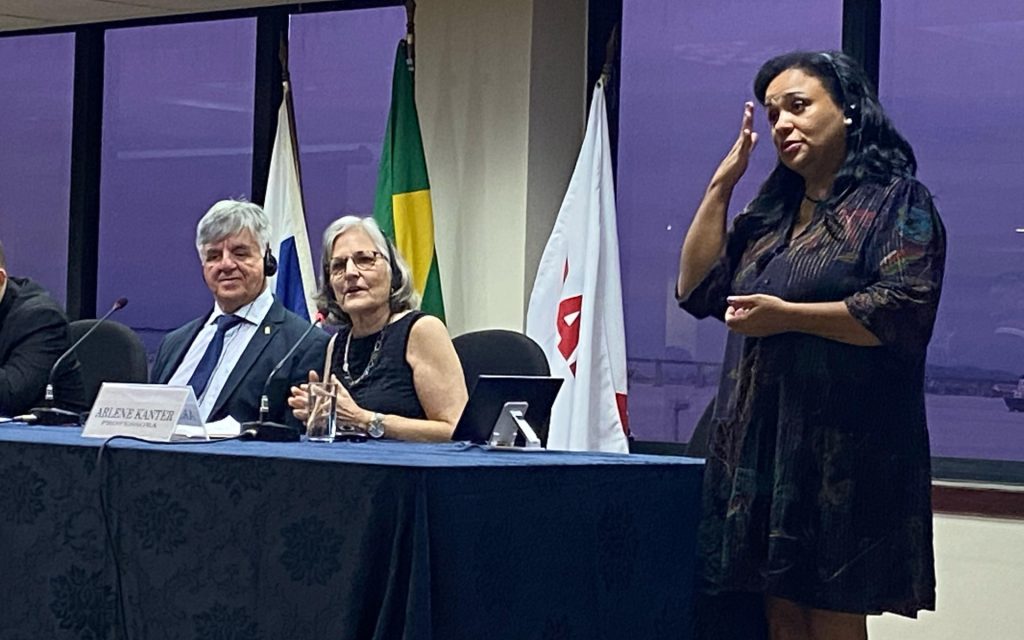
Professor Antonio Gidi is a scholar in civil procedure and class actions, teaching a heavy course load each fall at Syracuse Law and traveling internationally during the spring and summer semesters to present papers and teach at several universities and institutions. His work has created a major pipeline for students from his native Brazil, as Syracuse Law’s LL.M. Program consists of approximately one-third of Brazilian students annually.
Gidi has extensive academic credentials as a visiting professor of law in Brazil, as well as Mexico, Italy and France. His contacts in Brazil, in particular, have allowed him access to private and public lawyers, as well as state and federal prosecutors and judges, while also giving lectures and teaching about the law to organizations within the government.
According to Gidi, Syracuse University offers the perfect academic destination for Brazilian legal professionals, and they flourish. Over the past decade, Syracuse Law has hosted dozens of judges, prosecutors, and lawyers. Most of them are prestigious mid-career professionals, some of whom already hold advanced degrees. Through their exposure to American law, they enrich their own careers, and, at the same time, contribute to the American students’ exposure to international influences. “It’s a win-win proposition,” he says.
Gidi has also recruited a number of students from Mexico, mostly graduates of the Instituo Tecnologico Autonomo de Mexico (ITAM), which tend to be a younger cohort, many of whom are recent graduates just starting out in their law careers. “They, too, benefit from the LL.M. program, as they learn more about the U.S. legal system and culture, while sharing elements of their own country’s laws with others at Syracuse Law,” he says. “Gidi is a wonderful partner for our recruitment efforts,” says Andrew Horsfall, assistant dean of International Programs. “He has been generous with his time and efforts to use his connections towards building partnerships in other countries, particularly Brazil, and he is quite successful at it. This is such a great benefit to a diverse experience for the students and faculty at Syracuse Law.”
Other members of Syracuse Law faculty have had the opportunity to visit Brazil, as well. In February, Professor Arlene Kanter, founding director of the Disability Law and Policy Program (DLPP) and faculty director of international programs, was invited to spend two weeks in Brazil meeting with judges, lawyers, and students, and lecturing about disability rights, particularly about the United Nations Convention on the Rights of Persons With Disabilities (CRPD), which she helped to draft. An internationally acclaimed expert in international law, human rights, and comparative disability law, Kanter also met with government officials, Human Rights Watch, and 10 other disability organizations to discuss their ongoing efforts to achieve greater equality and inclusion for people with disabilities in Brazil, particularly in the area of education and for those at risk for institutionalization.

“I’m interested in how other countries have implemented the CRPD, which, by the way, is a treaty that the U.S. has not yet ratified,” she explains. “The disability laws are very different in many countries where I have worked, but the issues are the same—horrific conditions in institutions for people labeled mentally ill or developmentally disabled, unchecked violence against women with disabilities in institutions and in the community, denial of equal educational opportunities for children with disabilities who are sent to segregated and inferior schools, and lack of involvement by people with disabilities, themselves, in the development and implementation of the laws, policies, and practices that impact their lives. I’ve found that governments want to do right by people with disabilities, but, in many places, they just don’t know how. Brazil, for example, has enacted many excellent laws, but the hard part is implementing them. They have made great progress there, but they still have a long way to go.”
Kanter established the DLPP at Syracuse in 2007, which has recruited students with and without disabilities from all over the world to pursue careers in disability law. Her message has influenced lawyers, judges, government officials, and students in Brazil—and around the world—who come to Syracuse and study disability law through the LL.M. program. Many of those students have gone back to their respective countries to assume high level government jobs, to teach disability law, or to establish new organizations to promote disability rights.
Kanter acknowledges that despite excellent laws, much more needs to be done in the U.S. to ensure inclusion for people with disabilities in all aspects of life. “Learning from other countries is one way we can improve our own laws and practices,” she says.
After a 37-year career at Syracuse Law, Kanter retired at the end of the Spring 2024 semester. Year. But, given the ongoing requests for her assistance, she expects to continue to advocate for disability rights in the U.S. and elsewhere. In June, she traveled to Berlin at the request of the U.S. Department of State to provide training on international disability law to government offices there.
